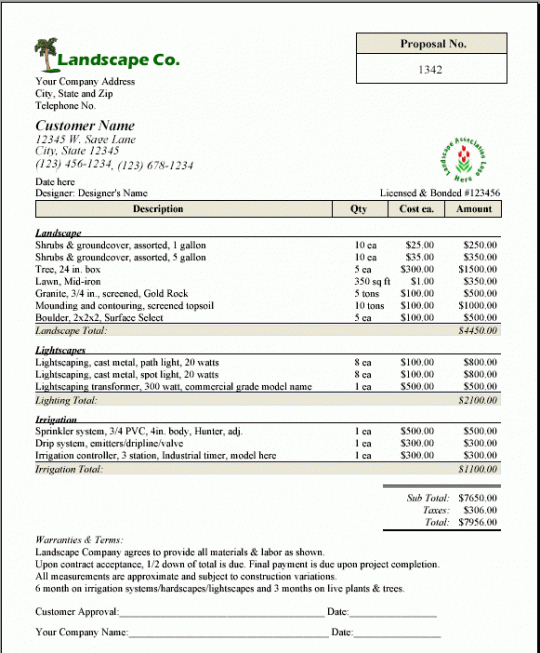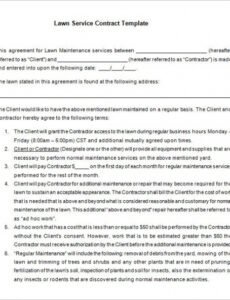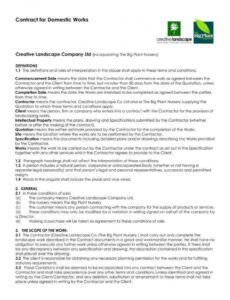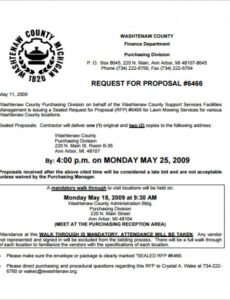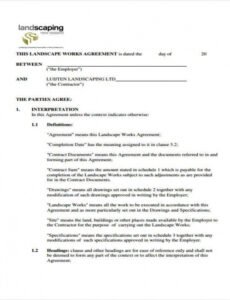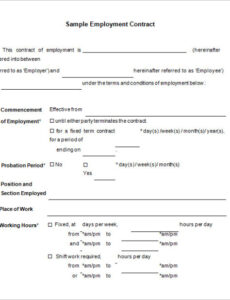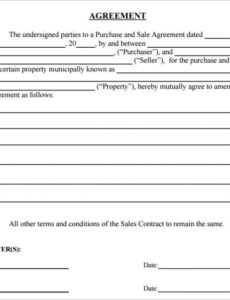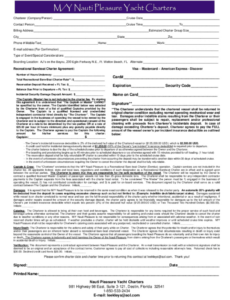Commercial landscaping contract template, A contract is defined as a written or spoken agreement that’s meant to be enforceable by law. Fundamentally, contracts are promises which the law will apply. The law of contracts is at the heart of the majority of business transactions and is, consequently, one of the most significant regions of legal concern. Most contracts which can be completed within a year may be either written or oral. Significant exceptions include contracts involving the possession of real estate and commercial contracts for goods worth $500 or even more, which has to be in writing to be enforceable.
Generally speaking, a contract is an arrangement between a few people, which creates a duty to do or not do a thing. The agreement comes together with a record of rights and duties, bounding on the parties included. In the event the arrangement has to be broken, there are exceptions in the law for remedies. Contract laws cover both the legal aspects and implications arising out of the law. Contract laws determine whether a contract is legally capable. They also treat other related matters such as whether there were fraudulent measures involved or with procedures which define how a contract is terminated.
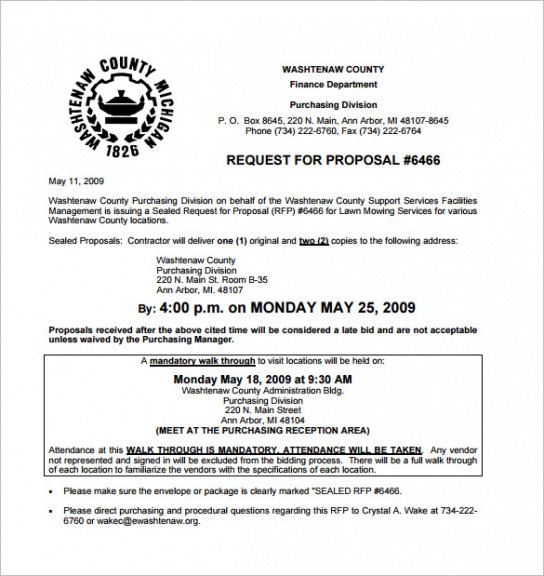
This isn’t the first book I’d recommend or look to for the beginner wanting to draft a contract, nor does this book have sample contracts or types for several conditions. What this book does include is an alphabetical list of virtually anything you can think of involving contracts. It is merely a contract encyclopedia. (While it has definitions like a dictionary occasionally, the entries tend to be much more as an encyclopedia than dictionary.)
Besides the definitions, the book also has examples of contract provisions, sample contracts, and sample clauses that you can add into contracts you are drafting. In some places, Stim supplies a small additional data, like the seven pages online negotiation. Clearly, there is quite a bit more to negotiation, you are able to fill book shelves with books on this topic, but it is great to have a little aimed at contract discussion.
Many law firms, especially small law firms, find the use of agency attorneys for quite a fantastic means to maintain flexibility and expand their law company without hiring in-house, midsize lawyers. Firms are legally allowed to bring a sensible surcharge to the prices of the customary attorneys. In a slowing market, the use of contract attorneys helps give companies a competitive advantage, decreasing costs while increasing efficiency. As contract legislation becomes an increasingly bigger sector of law enforcement industry, lawyer agencies are becoming more numerous. These are essentially businesses that find jobs for lawyers to perform and take a little fee for their services. Some companies who employ contract attorneys prefer to go through these agencies since they (the agencies) need a certain quality and professionalism from the lawyers that they represent.
